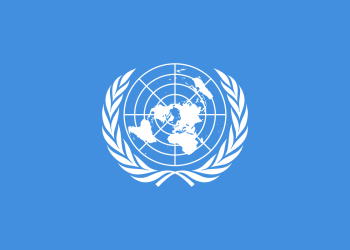In a speech broadcast last night on state controlled Libyan TV, Tripoli based Libyan Prime Minister Abd Alhamid Aldabaiba said he completely rejects the recent attempt by Ageela Saleh, the Speaker of Libya’s parliament, the House of Representatives (HoR), to charge a 27 percent tax/levy/surcharge on official foreign exchange sales at banks.
Saleh, it will be recalled, had approved a request from the Saddek El-Kaber, the Governor of the Central Bank of Libya (CBL), to impose a tax/fee/levy of 27 percent on the current official LD exchange rate. El-Kaber’s request was sparked by the sudden loss of value over the last month or so of the Libyan dinar (LD) against the major hard currencies.
The new flexible rate would allow the CBL Governor to defend the LD and sell the US dollar at a range from LD 5.95 to LD 6.15 – depending on market conditions. The current official exchange rate is LD 4.95 per dollar. The parallel black-market rate is about LD 7.26/dollar.
The process by which Saleh passed his decree is considered legally unsound and has faced large opposition – including from HoR members and its Deputy Speaker. It is already being challenged in court.
Libya’s economic situation is ‘‘very good’’ and there is no debt
In his speech last night, Aldabaiba insisted that Libya’s economic situation is ‘‘very good, according to reports’’. Attempting to punch holes in El-Kaber and Saleh’s rationale for introducing the 27 percent levy, Aldabaiba asked metaphorically ‘‘so what is the purpose of imposing a tax on the exchange rate when the public debt is paid, and we have achieved a surplus?’’.
Libya has a surplus?
Aldabaiba pointed out that the public debt was approximately 154 billion dinars, and now his government has been able to bring it down to “zero” – while achieving a surplus.
Defending the El-Kaber accusation that his government has been profligate in its spending on state sector salaries, subsidies, and consumer products, Aldabaiba insisted that his government ‘‘did not cost the state any budget deficit or public debt, but rather it achieved 26.6 billion dinars in surplus according to the Central Bank report.’’
This is a response to the Saleh decree, which is valid until the end of 2024, which prescribes that revenues generated from the 27 percent levy are used to cover the expenses of development projects and repay the public debt. Aldabaiba is insisting that there is no public debt.
Aldabaiba also accused Saleh of taking the decision to introduce the 26 percent levy ‘‘suddenly’’ and ‘‘without consulting specialists’’.
Inflationary spending?
Hitting back on the accusation that prices and inflation is up due to his government’s economic policy, Aldabaiba said ‘‘the inflation rate fell to a level not found in almost any regional country, from 5 percent in 2022, to 1.8 percent in 2023’’.
Exhausting foreign currency earnings
And responding similarly to the accusation that his government had exhausted foreign currency earnings, he said his government had pumped US$ 75 billion to the Central Bank of Libya, which he said is equivalent to what previous governments achieved in 6 years.
He said Libya’s foreign exchange reserves amounted to 84 billion dollars, which is ‘‘enough to cover Libya for years’’.
Aldabaiba accuses big business of abusing LC system
Instead, Aldabaiba accused the CBL of failing to control the disbursement of foreign currency through Letters of Credit (LCs) to certain fat cats, including private banks and the owners of private banks. He said many were abusing LCs to basically smuggle hard currency out of Libya. This smuggling includes the fake imports of non-existing goods or the overpricing of imports or the import of low-cost imports (water, rice, breeze blocks).
Saleh attempting to pay for and cover Hafter’s profligate spending
He said that what HoR Speaker Saleh was attempting to do is to cover the bill of the ‘‘parallel spending’’ in the (Khalifa Hafter dominated) eastern Libyan region by making citizens pay for it through this 27 percent levy.
It will be recalled that in his letter to Speaker Saleh, CBL Governor El-Kaber had referred to this so-called parallel spending as ‘‘parallel spending of unknown origin’’. This is most likely a reference to Hafter’s Military Investment Authority (MIA) and his regime’s smuggling of subsidised fuel – subsidised by the CBL and the Tripoli based budget.
Libya bought 27 tons of gold in June costing US$ 2 bn
Aldabaiba also revealed that, for the first time in 70 years, the Libyan state acquired 27 tons of gold in June 2023, which is approximately US$ 2 billion.







